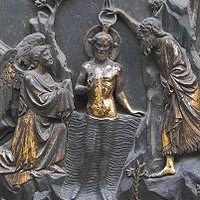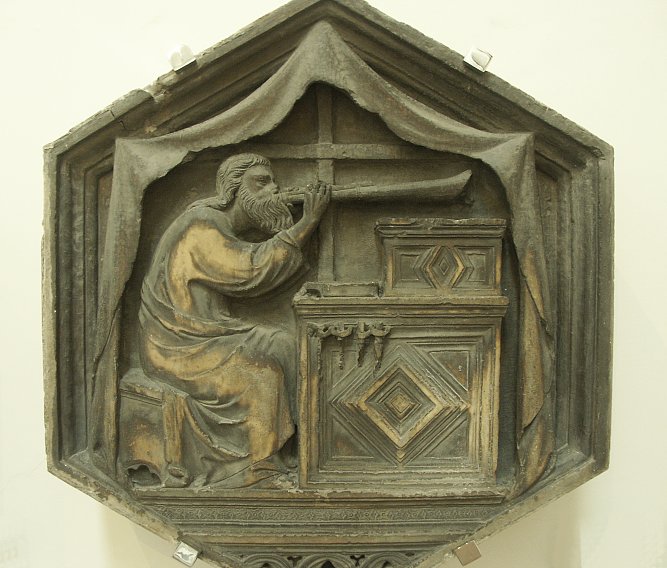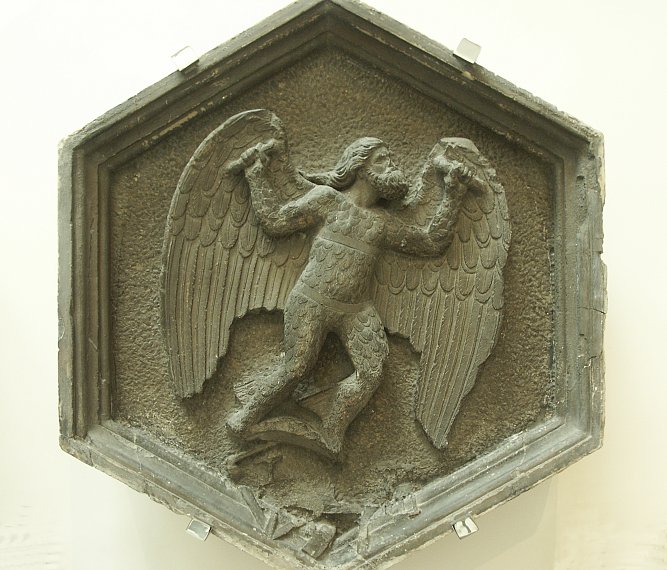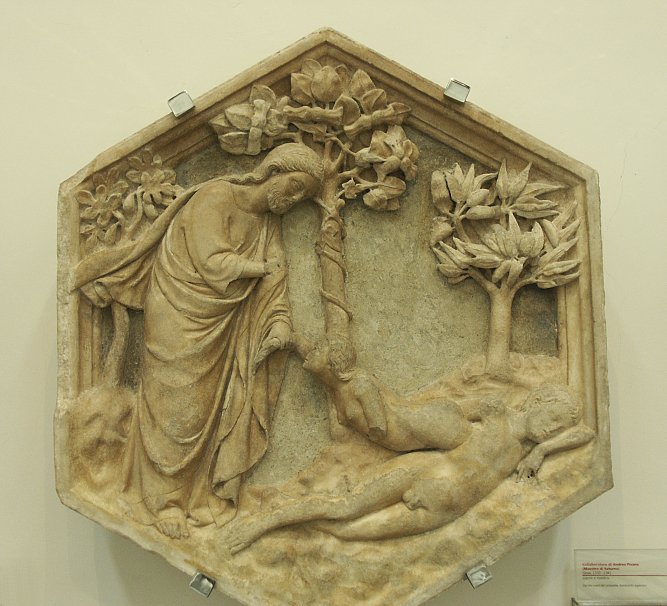Click on the illustrations to see the beauty of the art!
Andrea Pisano was a pioneer of prototypical Renaissance relief sculpture of the fourteenth century. His chief works can be found in Florence, the most important of which were his three bronze doors for the baptistery of the Cathedral of Florence, completed in 1336. As seen from his work, he was greatly influenced by the artist Giotto.
He was born in the province of Pisa and as with many fourteenth century artists, not much is known of his life. Pisano first learned to be a goldsmith, but then became of pupil of Mino di Giovanni and worked with him on sculptures for churches in Pisa and elsewhere, before developing his mature style in Florence.

The Baptistery of Florence has three world famous bronze doors, and the earliest one on the south side of the Baptistery contains Pisano’s work, completed in 1336. These are a number of small quatrefoil panels with relief sculpture. A quatrefoil is an ornamental design of four lobes, resembling a flower or four-leaf clover. Relief sculpture consists of shapes carved on a surface and standing out from the surrounding background.

The figures in Pisano’s relief sculptures for the Baptistery door are gilded and set against a smooth bronze surface. The lower eight are

single figures of the Virtues and the rest scenes from the life of John the Baptist. These reliefs are beautiful Christian art, and the iconography shows the influence of Giotto’s frescoes in the Basilica di Santa Croce. Pisano’s style is simple and restrained; his figures are carved with great skill and expertise.
In 1340, Pisano succeeded Giotto as Master of the Works of the Florence Cathedral and was in charge of the continuing


construction of the Campanile (bell tower), following Giotto’s design scrupulously. He added two stories and executed a series of sculptural reliefs, working with pupils from his own studio: Four Great Prophets, the Seven Virtues, the Seven Sacraments, the Seven Works of Mercy and the Seven Planets.
These are based on classical ideals but demonstrate the naturalism of Giotto.

The Duomo contains the chief of Pisano’s other Florentine works in marble.Of all the figures carved for the Duomo and attributed to Pisano, the most important is that of Santa Reparata, the patron saint to whom the basilica had been dedicated at an early date. Her gentle, almost shy attitude, and the manner in which we was rendered are indicative of a proto-Renaissance style.

In 1347, Pisano was named the chief architect of the Duomo of Orvieto, a 14th century cathedral in Orvieto in Umbria. Construction had begun in 1290 and continued for almost three centuries. Pisano died a year later in 1348, and was succeeded by his son, Nino. Pisano’s most most distinguished pupil was a painter, sculptor and architect know as Orcagna.


![]()

I marvel at the work of those times!
What beautiful works! I’m totally captivated by anything from this time period, but especially the art. It speaks so much to the mentality of the day–their beliefs and values. It’s so amazing, being able to get into the heads of people from another time.
True Heroes from A to Z
Pisano sure was a great and perhaps ahead of his time. Beautiful artwork and so very intricate. The time of real artisans. Thank you, Noelle.